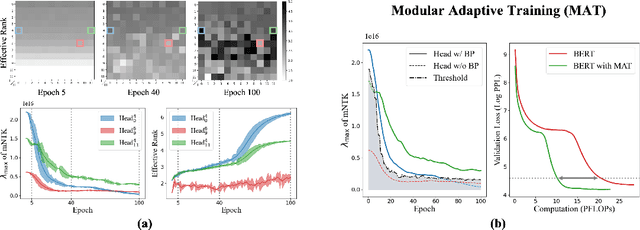Yubin Shi
ASER: Activation Smoothing and Error Reconstruction for Large Language Model Quantization
Nov 12, 2024Abstract:Quantization stands as a pivotal technique for large language model (LLM) serving, yet it poses significant challenges particularly in achieving effective low-bit quantization. The limited numerical mapping makes the quantized model produce a non-trivial error, bringing out intolerable performance degration. This paper is anchored in the basic idea of model compression objectives, and delves into the layer-wise error distribution of LLMs during post-training quantization. Subsequently, we introduce ASER, an algorithm consisting of (1) Error Reconstruction: low-rank compensation for quantization error with LoRA-style matrices constructed by whitening SVD; (2) Activation Smoothing: outlier extraction to gain smooth activation and better error compensation. ASER is capable of quantizing typical LLMs to low-bit ones, particularly preserving accuracy even in W4A8 per-channel setup. Experimental results show that ASER is competitive among the state-of-the-art quantization algorithms, showing potential to activation quantization, with minor overhead.
Train Faster, Perform Better: Modular Adaptive Training in Over-Parameterized Models
May 13, 2024



Abstract:Despite their prevalence in deep-learning communities, over-parameterized models convey high demands of computational costs for proper training. This work studies the fine-grained, modular-level learning dynamics of over-parameterized models to attain a more efficient and fruitful training strategy. Empirical evidence reveals that when scaling down into network modules, such as heads in self-attention models, we can observe varying learning patterns implicitly associated with each module's trainability. To describe such modular-level learning capabilities, we introduce a novel concept dubbed modular neural tangent kernel (mNTK), and we demonstrate that the quality of a module's learning is tightly associated with its mNTK's principal eigenvalue $\lambda_{\max}$. A large $\lambda_{\max}$ indicates that the module learns features with better convergence, while those miniature ones may impact generalization negatively. Inspired by the discovery, we propose a novel training strategy termed Modular Adaptive Training (MAT) to update those modules with their $\lambda_{\max}$ exceeding a dynamic threshold selectively, concentrating the model on learning common features and ignoring those inconsistent ones. Unlike most existing training schemes with a complete BP cycle across all network modules, MAT can significantly save computations by its partially-updating strategy and can further improve performance. Experiments show that MAT nearly halves the computational cost of model training and outperforms the accuracy of baselines.
 Add to Chrome
Add to Chrome Add to Firefox
Add to Firefox Add to Edge
Add to Edge